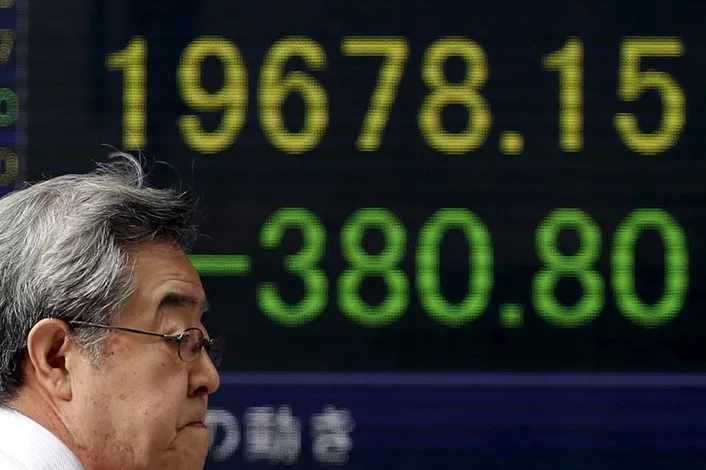Most Asian stocks traded in a narrow range on Tuesday, as investors remained cautious due to ongoing concerns about U.S. President Donald Trump’s trade tariffs and his criticism of Federal Reserve Chair Jerome Powell.
Trump’s recent remarks on Powell, warning that the U.S. could face a recession unless the Federal Reserve cuts interest rates, contributed to significant losses on Wall Street on Monday. This downturn extended into Asia.
However, U.S. stock futures rose in Asian trading, with S&P 500 futures climbing 0.6%, suggesting a possible rebound. Investors were also focused on upcoming first-quarter earnings reports, including Tesla, which was set to announce results later in the day.
Despite the U.S. futures rally, sentiment in Asian markets remained weak, as the U.S. and China showed few signs of easing their ongoing trade conflict. Concerns about tighter monetary conditions in Japan also added pressure to market sentiment.
China and Hong Kong Markets Flat; Trade Tensions Escalate
Chinese stocks moved in a narrow range, with the Shanghai Shenzhen CSI 300 and Shanghai Composite indices showing little change. In Hong Kong, the Hang Seng Index fell by 0.5% after a long weekend break.
E-commerce giants JD.com and Meituan both saw their shares drop over 6% each, driven by increased competition in the food delivery sector.
China’s Commerce Ministry issued a warning on Monday against other countries striking trade deals with the U.S. that could hurt China. The ministry also accused Washington of abusing tariffs, escalating tensions between the world’s two largest economies. Trump’s decision to raise tariffs on Chinese goods to 145% earlier in April led to a retaliatory 125% tariff from China.
Despite repeated criticism of the U.S. tariffs, Beijing has shown little interest in renewing talks with Washington. The tariffs are expected to harm China’s export-heavy industries and dampen local growth.
Japan’s Market Flat as Tariff Concerns Weigh on Exporters
In Japan, the Nikkei 225 index dropped 0.1%, while the broader TOPIX index remained unchanged. Japanese export-focused companies were under pressure from a stronger yen, which reached its highest point in seven months, driven by increased demand for safe-haven assets.
Prime Minister Shigeru Ishiba voiced concerns on Monday over the U.S. tariffs, especially the 25% levy on foreign automobiles, which could severely impact Japan’s major automakers. Ishiba reaffirmed Japan’s commitment to the 2019 trade deal with the U.S. but warned that the country would not concede easily in future trade discussions with Washington.
Markets in Japan were also weighed down by fears of further interest rate hikes by the Bank of Japan, after March’s consumer inflation data came in above expectations, well above the BOJ’s target.
Attention this week is focused on Japan’s purchasing managers index (PMI) for April, due on Wednesday.
Broader Asian Markets in Tight Range
Other Asian markets also remained largely stable. Australia’s ASX 200 was little changed ahead of April’s PMI data, due on Wednesday. South Korea’s KOSPI saw a small increase, with investors awaiting first-quarter GDP data later this week.
Singapore’s Straits Times Index, however, stood out, rising 1.2% as investors sought safety in local bank stocks amid growing economic uncertainty.
Futures for India’s Nifty 50 index pointed to a positive opening, after the index gained more than 1% in the previous session.
Related Topics:


